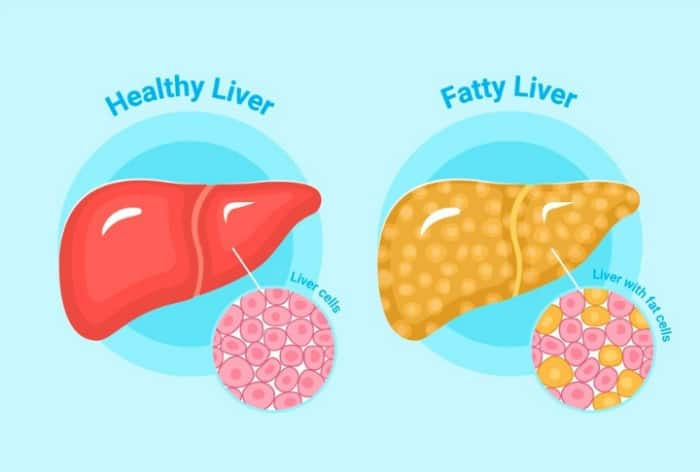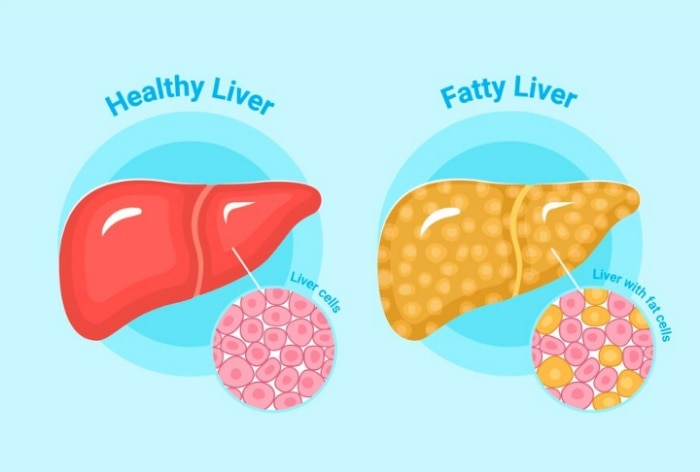Fatty liver is becoming increasingly common on this cotemporary sedentary lifestyle. But can it really be reversed? Here is what we know.

In this sedentary lifestyle, diabetes, high blood pressure, high cholesterol has increasingly become common. Fatty liver disease, or hepatic steatosis, is another such disease. It occurs when excess fat builds up in the liver. It can be caused by various factors, including obesity, poor diet, and excessive alcohol consumption. But can fatty liver be reversed? Fatty liver can often be reversible with lifestyle changes but it also depends upon the liver health. In some cases it can be reversed, but in some cases one may not be able to completely reverse it but can be managed with few daily habit change. Here are five practical ways to help reduce fatty liver and improve liver health.
5 Ways to reduce fatty liver build up
- Healthy Diet: A balanced diet is crucial for reversing fatty liver. Focus on whole, nutrient-dense foods while avoiding processed and high-sugar options. Aim for a variety of colorful fruits and vegetables, which are rich in antioxidants and fiber. These help reduce inflammation and promote liver health. Incorporate sources of healthy fats, such as avocados, nuts, seeds, and olive oil. These fats help improve lipid profiles without contributing to fat accumulation.
- Maintain a Healthy Weight: Losing weight can significantly reduce liver fat. Even a modest weight loss of 5-10% can have a positive impact on liver health. Aim for gradual weight loss through a combination of diet and exercise. Rapid weight loss can worsen liver inflammation.Use apps or journals to monitor your food intake and physical activity. This accountability can help you stay on track.
- Stay Physically Active: Regular physical activity is essential for burning excess fat and improving overall health. Activities like walking, cycling, or swimming can be effective. Add resistance exercises at least two days a week. Building muscle can help increase metabolism and support weight loss.
- Limit Alcohol Consumption: Excessive alcohol intake is a significant contributor to fatty liver disease. Reducing or eliminating alcohol can help reverse liver damage. If you choose to drink, do so in moderation. This generally means up to one drink per day for women and up to two for men. For those with diagnosed fatty liver disease, complete abstinence may be advisable. Consult with a healthcare provider for personalised recommendations.
- Manage Blood Sugar and Cholesterol: High blood sugar and cholesterol levels can exacerbate fatty liver. Monitoring and managing these levels is crucial for liver health. Work with your healthcare provider to monitor blood glucose and lipid levels. If necessary, follow a treatment plan that may include medication or lifestyle changes.
Focus on low-glycemic-index foods that stabilize blood sugar levels, such as whole grains, legumes, and lean proteins.
Reversing fatty liver is possible through committed lifestyle changes. However, it is always better to consult with a healthcare professional before making significant changes to your lifestyle or diet, especially if you have underlying health conditions. By prioritising your liver health, you can enhance your overall well-being and reduce the risk of further complications.

